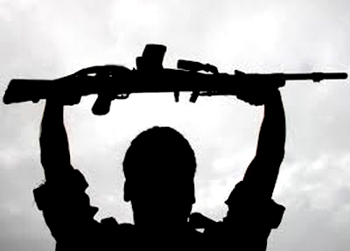Thiruvananthapuram/Coimbatore, May 5: A top Maoist leader, wanted in at least 20 cases in Kerala, his wife and three others, were arrested near Coimbatore in a "big breakthrough" for the police of four southern states.
 Kerala Home Minister Ramesh Chennithala said tonight that the arrest of Roopesh and the others were made by Andhra police following a joint operation undertaken by Andhra, Kerala, Karnataka and Tamil Nadu police.
Kerala Home Minister Ramesh Chennithala said tonight that the arrest of Roopesh and the others were made by Andhra police following a joint operation undertaken by Andhra, Kerala, Karnataka and Tamil Nadu police.
He said this was a "big breakthrough" and could be achieved due to 'co-ordinated' efforts of the four state governments.
"At least five Maoists have been arrested. For the past two months, police of Andhra, Karnataka Kerala and Tamil Nadu were undertaking joint operations to nab them," he said.
"The Maoists are being questioned. Roopesh will be brought to Kerala," he said.
A Coimbatore report, quoting police sources, said front- ranking Maoist leaders Roopesh and his wife Shina, were arrested near Karumathampatti, about 25 km from Coimbatore.
Besides the couple, others arrested were Anup from Kerala, Veeramani from Karnataka and Kannan from Tamil Nadu, the sources said, adding, all would be taken to Kerala for further questioning on the way to Andhra Pradesh.
While Roopesh entered mainstream Maoist activities through CPIM (ML) students wing, Shina was a clerk in a court, police said.





Comments
Add new comment